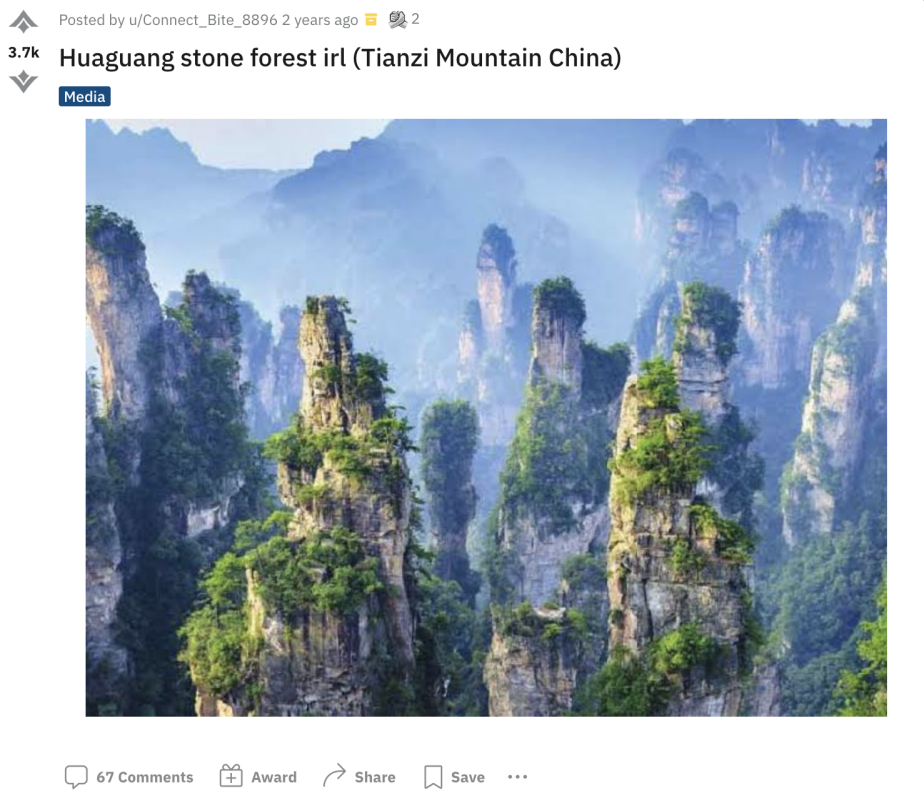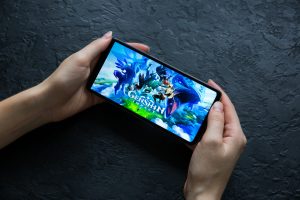The success of Genshin Impact, an action role-playing game, was unexpected. The game, produced by Chinese company miHoYo and released in 2020, has quickly gained global popularity since its debut. By July 2022, it had 4.7 million downloads and a monthly revenue of $82 million, making it one of the fastest games to reach $1 million in revenue. It remained one of the world’s top three most downloaded mobile games for two years after its launch.
As of February 24, 2023, the game’s official YouTube account has reached 6.51 million followers and racked up over 1 billion cumulative views. On Reddit, there are more than a million members of the Genshin Impact community. Twitter also named Genshin Impact the most mentioned game in the first half of 2022.
With the game gaining popularity worldwide, how are people within China interpreting Genshin Impact’s success?
From 2020 till now, Chinese netizens have created and viewed Genshin Impact-themed videos on China’s video-streaming platform Bilibili. Many of the videos endorse the game’s global impact as a reflection of Chinese cultural influence. A close examination of those videos will reveal how Chinese people celebrate the country’s soft power achievements at home, especially in the context of China’s great power aspiration and its pursuit of the China Dream.
Genshin Impact: A Soft Power Tool?
Genshin Impact was the first Chinese video game to become a global hit. Its overseas revenues are greater than earning in its home country, setting it apart from other Chinese games. Genshin Impact’s success both inside and outside of China has given it a worldwide player base and considerable forum buzz, and has encouraged countless derivative works.
A highly cohesive transnational fanbase formed around Genshin Impact. Through translation and communication on the internet, players from different countries interact with each other. Reddit users, for example, translate posts from Weibo, China’s main social media, into English while Chinese netizens translate comments from international players on Reddit, YouTube, and Twitter into Chinese.
Among players and analysts, various viewpoints have arisen around the cultural influence of Genshin Impact. One view is that Genshin Impact, because of its popularity and cultural elements, has become an important channel for the spread of Chinese soft power. Although controversially borrowing from the Japanese game series Zelda and incorporating elements of Japanese culture, Genshin Impact contains a large number of Chinese cultural elements. While playing Genshin Impact, overseas players can learn about the Chinese language and traditional Chinese culture in a relaxed and casual way.
Others are concerned about the cultural diversity of the game. Genshin Impact is inclusive in its content and character design, incorporating elements from cultures around the world. This multiculturalist design is tailored to the expectations of players from different countries and opens up the global market.
Genshin Impact’s increasingly close relationship with Chinese authorities seems to confirm its crucial role as a soft power tool. In February 2021, the official Twitter account of the Chinese Consulate in Osaka borrowed a Genshin Impact character to celebrate the Lunar New Year. In July 2021, the Chinese Ministry of Commerce released its Public Announcement of the 2021-2022 List of Key Enterprises and Key Projects of Cultural Export. Genshin Impact was on the list.
Apart from the embrace of Chinese officials, praise for the Chinese soft power represented by Genshin Impact also appeared on Weibo and other social media. In January 2023, Weibo users had a heated discussion about an interview with Professor Zhang Weiwei of Fudan University. Zhang said that “foreigners who play this game will feel that China is not a closed country, not a backward country… It must be a country with a very high level of culture and a very high level of modernization.” On the same day, “Experts say Genshin Impact shows China’s high level of modernization” became a hot topic on Weibo.
Celebrating Soft Power Success on Bilibili
Outside of Weibo, netizens are celebrating China’s soft power success represented by Genshin Impact on the live-streaming and video-streaming site Bilibili, also known as the YouTube of China. Originally an ACG (Animation, Comics, Gaming) platform, Bilibili has evolved into one of the most popular online communities, connecting young people with shared interests in music, dance, gaming, entertainment, film and television.
This video-streaming powerhouse has tens of thousands of Genshin Impact-themed videos, many of which have reached over 1 million views. Through “bullet comments” and other interactive options, audiences interact passionately with these videos.
Bilibili videos also break the information barrier and provide Chinese viewers access to overseas information. Users often repost YouTube videos on Genshin Impact, and, interestingly, the videos posted by Genshin Impact’s official Bilibili account have shown a cosmopolitan style. In addition to Chinese, the official videos are available in multiple languages, including Japanese, Korean and English, which is rare on the Chinese-dominated video platform.
On the video-streaming site deserves, there are three main kinds of popular videos that celebrate Genshin Impact’s global cultural influence. Despite starting from different perspectives, these videos all express the popularity of the game overseas and received numerous comments with nationalist sentiments.
The first type of video involves reposting overseas players’ reactions to the game from YouTube to Bilibili, showcasing the players’ affection toward the game. In January 2022, after Genshin Impact Official released a game trailer with elements of a Chinese opera, “The Divine Damsel of Devastation,” one Bilibili account reposted a reaction mashup titled “Foreigners reacting to The Divine Damsel of Devastation, 12 together.” The video has gained 1.7 million views as of this writing. Notably, the original video on YouTube has just 378,000 views.
The original post on YouTube featured players from different cultural backgrounds who were excited about Chinese culture while watching the trailer. Their feeling of affection was noticed and appreciated by Bilibili viewers. Chinese netizens were pleased to see that the foreign players “were fascinated.” One hot comment said, “I was as excited (as they were) when I watched the video.” One comment with 9,000 likes swooned, “Isn’t this a promo for our national treasure?”
Previous academic research pointed out that the reaction video as a well-established genre is a channel for transnational communication and hybrid identity construction. On Bilibili, the transnational practice of reposting and watching Genshin Impact reaction videos reinforced nationalist sentiments: It amplified for Chinese netizens a sense of global affection for Chinese culture, confirming the game’s successful role as a cultural ambassador and evoking a sense of national pride.
In the second type of video, creators collect discussions about Genshin Impact from overseas social media platforms and websites and compile screenshots of these discussions in a video. They aim to show how foreign players and influencers are impressed by China and rid themselves of stereotypes after playing Genshin Impact.
One video with 600,000 views reposted a discussion on Reddit (see original post below), saying: “A post went viral on a foreign forum… Foreign players are blown away by the beauty of China.”

The original Reddit post that featured in a popular Bilibili video.
Another video titled “New York Times criticizes Genshin Impact, but foreign netizens refute it” is another example. The video translates a New York Times article on Genshin Impact, indicating that the article wrongly accuses the game of plagiarizing Japanese culture. The video does not directly respond to the plagiarism controversy, but rather highlights the foreign players’ “criticism” of the New York Times and their “defense” of Genshin Impact. Below the video, many Bilibili viewers commented with patriotic sentiments that “American and Japanese games can be seen as popular, but Chinese games cannot.” Commenters felt that the success of Chinese games was not recognized properly and that this symbolized the prejudice China faces internationally.
The third type of video offers a direct appreciation of the soft power represented by Genshin Impact, demonstrating an original point of view rather than reposting foreign content with added comments. The previously mentioned interview with Professor Zhang Weiwei, which went viral on Weibo, has over 1 million views on Bilibili. The account Kuwan Lab produced a video to praise Genshin Impact as the best example of China’s cultural export; the video received 2.5 million views.
These videos as a whole argue that games help break stereotypes and convey a positive national image abroad. In a video with over 800,000 views, one creator shared his personal experience when studying in the United States to argue that Genshin Impact encouraged Americans to learn Chinese and understand China.
The positive effect of Genshin Impact on Chinese soft power is deeply recognized by the videos’ audiences. For example, among the 30,000 comments Kuwan Lab’s video received, many delightedly agreed that Genshin Impact was able to influence foreigners’ subconscious impressions of China by showcasing cultural elements and providing an aesthetic experience, and that they expected China to invest in the gaming industry.
Conclusion
These “soft power celebration” narratives on the Chinese video-streaming platform satisfy the viewers’ nationalist sentiments. Surprisingly, few analysts have elaborated on the ways in which China’s soft power success is appreciated on domestic platforms or emphasized the role of video platforms in cultivating the collective vision of a culturally rising China.
Cultural diplomacy has been a focus of the China Dream since its inception. Through soft power, China hopes to demonstrate its identity as a great power and convey the ideal of a “community with a shared future for mankind.” However, China’s national image continues to be challenged internationally.
The domestic euphoria and fervor surrounding the Genshin Impact videos seem to send a message that although official cultural diplomacy has not been as effective as it should be, China is now achieving successful cultural export through “unofficial” channels. The video creators and viewers believe that China and Chinese culture are gaining long-overdue international recognition.













